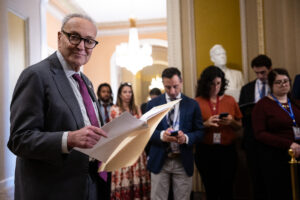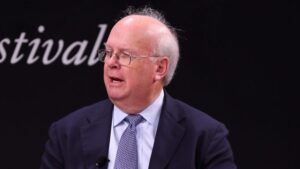The Dictatorship
One of Amazon’s biggest sale days comes comes at a high cost for its delivery drivers
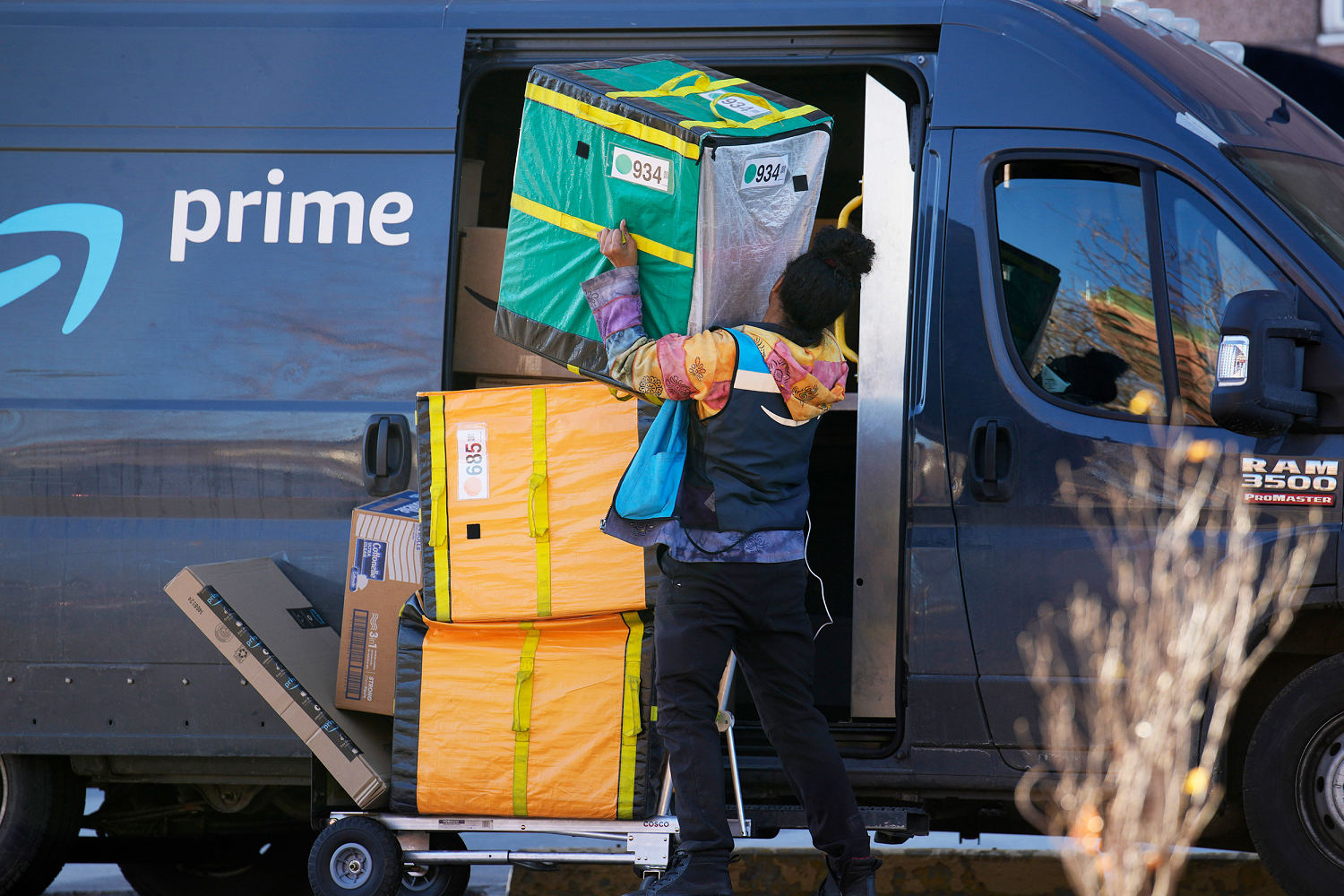
It’s Amazon’s fall “Prime Big Deal Days,” promising deals on everything from robot vacuums to children’s coats to stocking stuffers. But these deals come at a high price.
Amazon is a behemoth, delivering over 1.6 million packages a day to homes across the United States. To get those packages the “last mile” to their destinations, Amazon enlists an army of hundreds of thousands of people: handlers who sort and dispatch the packages at fulfillment centers and drivers who deliver to doorsteps around the country. But though these workers are absolutely essential to this $2 trillion company, they struggle to make ends meet.
Drivers commonly report low wages, unpredictable schedules and lack of benefits such as paid sick leave.
Despite the company’s dependence on delivery drivers, Amazon doesn’t put these workers on their payroll, at least not directly. Instead, Amazon hires delivery drivers through one of two methods. One is through third-party “direct service partners.” These DSPs are technically independent of Amazon but largely or entirely dependent on the company to stay in business. The other is Amazon Flex, an online platform where drivers essentially sign up for “gigs” as delivery drivers. Even as the company sets strict requirements for delivery to meet its promise of Same Day and Next Day Delivery, it skirts responsibility for its drivers who actually solve the company’s “last mile” problem.
While this model has fueled Amazon’s rise to be the largest delivery company in the countryit has left delivery drivers in the dust.
I’ve”https://shift.hks.harvard.edu/wp-content/uploads/2025/10/Shift_brief_Oct25.pdf”>co-authored a new report on the impact of this phenomenon, based on survey responses from drivers collected by the Shift Project at Harvard University’s Kennedy School. In these surveys, drivers commonly report low wages, unpredictable schedules and lack of benefits such as paid sick leave. At the same time, drivers report a high degree of control and surveillance over their movements. No wonder, then, that they are also likelier to quit.
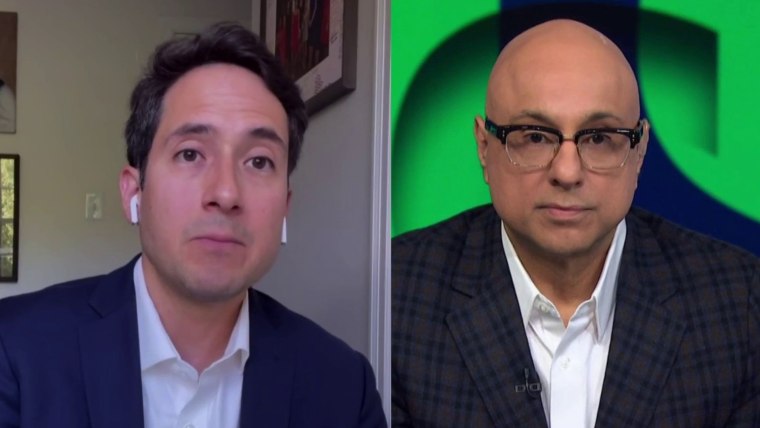
The most common justification that Amazon offers for the gig workers model is that what workers give up in formal protections they gain in control over their own schedules. But that’s often not borne out in the experience of drivers. The Amazon Flex app often locks out drivers who are looking to change shifts or book extra shifts, and most of the highest-paying shifts are offered only a few days in advance. Once you do get a shift on the Flex app, you are tracked with eerie precision. Drivers receive a “standing” grade based on on-time deliveries and accuracy, but those grades don’t take into account long lines at pickup locations, parking challenges, locked buildings or GPS delays on the drivers’ phones — much less drivers’ getting to spend their time taking care of their own lives.
On a human level, too, the sales pitch behind “flexible” gig work is really that it should give people more time for the things they really want to do in life. But the Shift Project found that Amazon drivers can’t afford enough to eat or pay their utility bills. What good is flexibility if workers just have to use that extra time to get other jobs? This is further exacerbated by the risks workers absorb that would be Amazon’s responsibility if they were employees. In 2021, a study found that nearly 1 in 5 Amazon drivers suffered injuries on the job. But because of Amazon’s business model, it isn’t required to provide worker’s compensation for the drivers.
Amazon’s size and unchallenged market power give it near-total control over pricing and wage-setting.
To make matters worse, Amazon’s sheer size and market share as the largest home delivery retailer means how it treats its drivers affects standards across the industry. The Shift Project’s survey results show that Amazon’s drivers are paid about half as much as their UPS counterparts. And as our report lays out, UPS has seen a dramatic loss in market share, from 35% of delivery in 2015 to just over 20% in 2024.
Part of the reason Amazon treats its drivers this way is it thinks it can get away with it. Unfortunately, under our current regulatory system, to a certain extent it’s right. Amazon’s size and unchallenged market power give it near-total control over pricing and wage-setting. The Trump administration has systematically dismantled the agencies that should protect consumers and workers.
The Labor Department, which enforces wage, health and safety laws, and which opened investigations of Amazon during the Biden administration, has been slashed by 20%. The Consumer Financial Protection Bureauwhich took action to regulate digital payments and worker surveillance through consumer reports that covered Amazon, has been gutted. Both agencies’ rules holding corporations accountable have been reversed, and lawsuits have been dropped or settled for slaps on the wrist. Just last month, the Federal Trade Commission settled a case brought against Amazon for making it too hard for people to cancel their Prime subscriptions. The $2.5 billion settlement is a drop in the bucket for Amazon. One of the advantages of size is being able to absorb penalties for bad behavior as a cost of doing business.
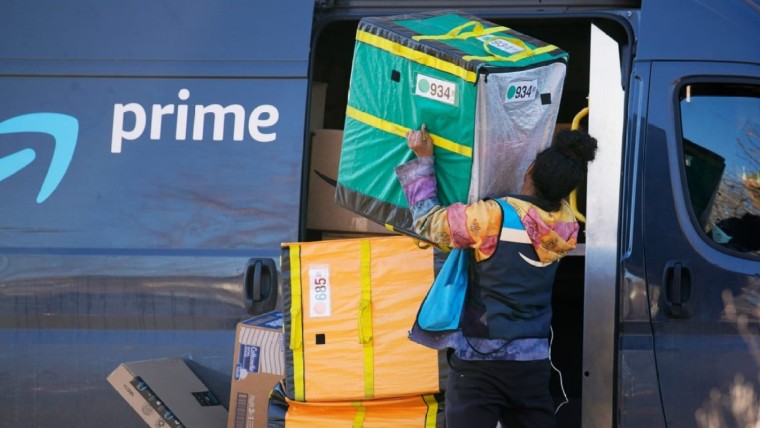
It doesn’t have to be this way. In contrast to Amazon, UPS has, for over a century, hired its drivers as employees and had a unionized workforce. In fact, UPS is the world’s largest employer of Teamsters, demonstrating that delivery driving can be a good union job with wages that rise with seniority, job security, health insurance, paid time off and retirement benefits. In contrast, Amazon has cut ties with DSPs when their drivers choose to unionize (for purely nonunion-related reasons, the company insists).
But under the Trump administration, big businesses that kiss the ring are rewarded. This means Amazon’s expansion will only continue and its power to dictate terms that ultimately hurt consumers and workers will grow. Doesn’t sound like such a great “deal” after all.
Julie Su
Julie Su is a senior fellow at The Century Foundation and previously served as acting secretary of labor in the Biden administration.
The Dictatorship
The two words Democrats are avoiding in praising the Israel-Hamas peace deal
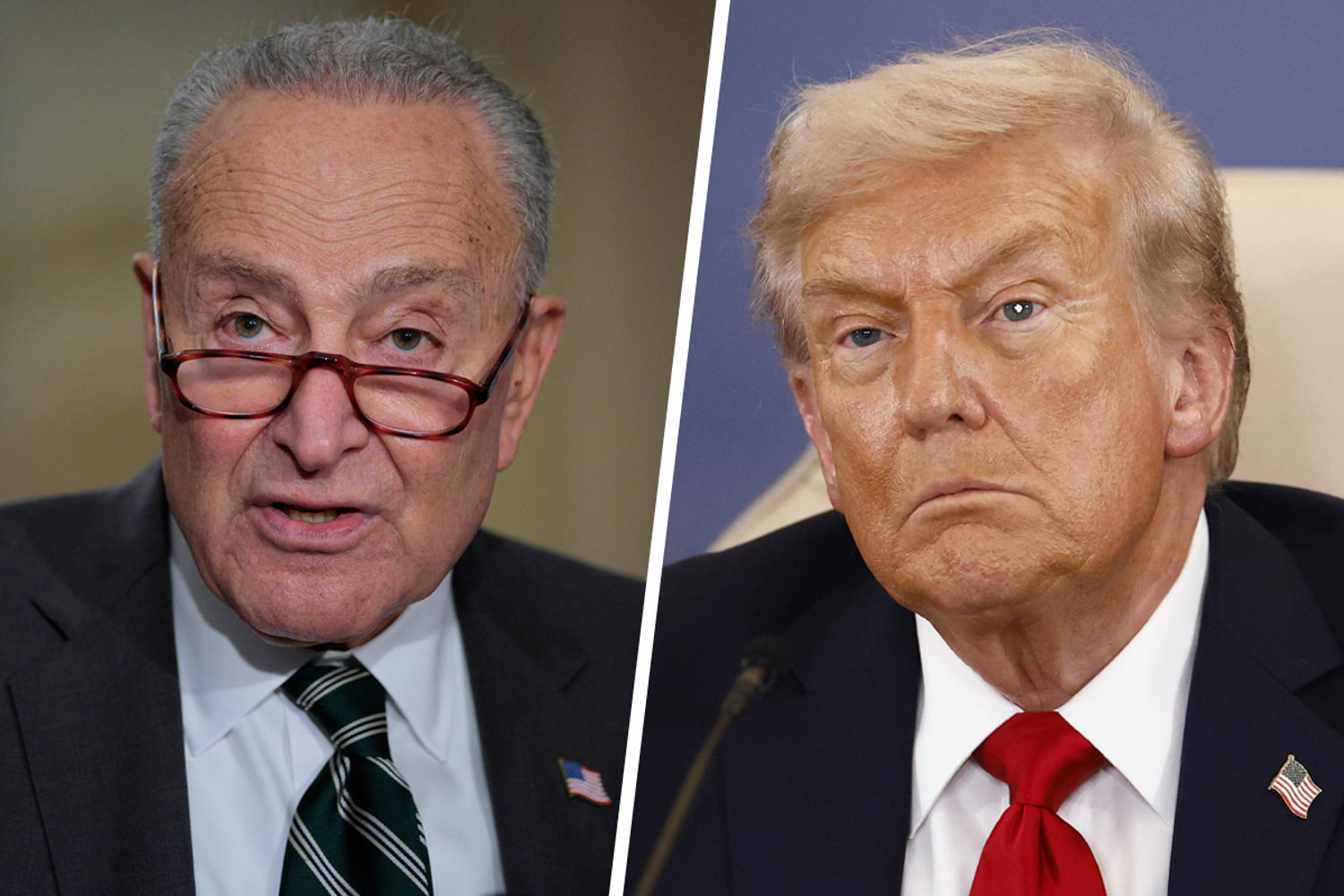
Democrats are heaping praise on the peace deal struck between Israel and Hamas, which unlocked the release of all living hostages in Gaza. But there are two words most Democrats are omitting when discussing the peace agreement: “Donald” and “Trump.”
In statement after statement, Democrats on Capitol Hill lauded the end to the fighting, the liberation of hostages and the hope of a new chapter in the Middle East, applauding “all involved in succeeding to broker the ceasefire agreement” and touting the “power of diplomacy” for getting the globe to that moment.
“After two years of abduction and torture, every living hostage is finally home. Those who were taken on October 7th will outlast the terrorist organization that tore them from their families and homes and unleashed a war of untold suffering,” Rep. Ritchie Torres, D-N.Y., wrote on social media. “Against all odds, the timeless call to ‘Let My People Go’ has been answered.”
Notably, however, there was no mention of Trump.
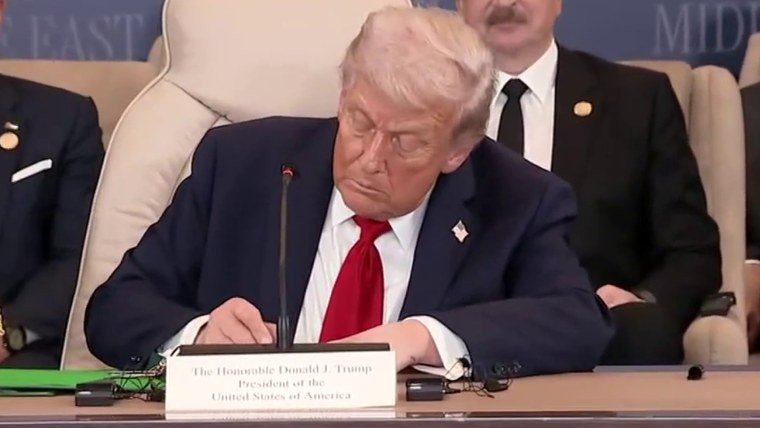
The same could be said for Minority Leader Hakeem Jeffries, D-N.Y.
Jeffries called the agreement “an extremely welcome development.”
“The world will be a better place with a safe and secure Israel living side by side in peace and prosperity with the Palestinian people able to achieve the dignity and self-determination they deserve. We must all recommit to achieve that outcome,” Jeffries said.
Senate Minority Leader Chuck Schumer, D-N.Y., eventually gave Trump a shout-out Monday afternoon, after ignoring the president’s role when the deal was first announced.
In a 175-word statement, Schumer commended “the enormous advocacy of the tireless hostage families, President Trump, his administration, and all who helped make this moment happen.”
While he didn’t necessarily avoid Trump, he was careful to bookend his praise within a statement that celebrated the living hostages coming home and a call to build a lasting peace in the region.
And the ranking Democrat on the House Foreign Affairs Committee, Rep. Gregory Meeks, D-N.Y., posted on X that he was “deeply relieved to see the living hostages released from Gaza today.”
“May their freedom mark a process of healing for them and their families, and the beginning of a durable peace for both Israelis and Palestinians,” Meeks said.
There was no mention of Trump.
The divide between celebrating the deal while ignoring the man who helped broker it highlights the politically tricky terrain Democrats find themselves in. They want to laud the potentially historic peace agreement without giving credit to Trump, a figure they and their voters largely loathe and whose actions throughout the war have drawn criticism.
It’s the latest flashpoint in the long-simmering debate within the Democratic Party over Israel, which has pitted pro-Israel Democrats against progressive lawmakers who sharply criticized the treatment of Palestinians in Gaza — a discourse that has played out publicly.
Republicans, for their part, are taking note of the lopsided reaction. On Monday, Speaker Mike Johnson, R-La., criticized Democrats for not explicitly giving Trump “any credit,” accusing them of being fearful of the blowback from their base.
“They’re afraid, again, as I said in the press conference, of their Marxist base,” Johnson told reporters. “They’re afraid of the radical left, the growing number of radical leftists in the Democrat Party who will attack them if they say anything positive or affirmative about President Trump and his work, and it is a great shame and a great danger to the country.”
The speaker noted that he was “heartened” by the comments of some Democrats, including former Secretary of State Hillary Clinton — Trump’s rival from the 2016 election. In an appearance Friday on CBS News, Clinton said, “I really commend President Trump and his administration, as well as Arab leaders in the region for making the commitment to the 20-point plan and seeing a path forward for what’s often called the day after.”
Of course, some congressional Democrats have joined Clinton in calling out the president.
Sen. Jon Ossoff — who faces a tough re-election next year in Georgia — praised the White House. “I commend the efforts of the Trump Administration and international partners to achieve this moment and will vigorously support the hard work ahead necessary to secure peace, security, and freedom for all people in the Middle East,” he wrote in a statement.

In a post on social media, Rep. Jared Moskowitz, D-Fla., called it an “amazing day for the families” of returned hostages. “And for @POTUS and all the negotiators who made this day possible,” he said.
Sen. John Fetterman, D-Pa., a vocal supporter of Israel, also congratulated Trump the day he announced the peace deal.
And asked during a Sunday appearance on BLN how much credit Trump deserves for the deal, Sen. Mark Kelly, D-Ariz., said Trump “should get a lot of credit.”
“This was his deal,” Kelly added. “He worked this out.”
Of course, Trump has played into the stewing domestic political divide over the situation in the Middle East, criticizing his Democratic predecessors as recently as Monday during his speech before the Knesset.
“All of the countries in the Middle East could have — what we’re doing now — it could have happened a long time ago, but it was strangled and set back, almost irretrievably by the administrations of Barack Obama and then Joe Biden,” Trump said in his hour-plus remarks.
Kevin Frey is a congressional reporter for BLN. He previously served as Washington correspondent for Spectrum News NY1. A graduate of George Washington University, he grew up in Pennsylvania. When he isn’t roaming the halls of Congress, you’ll find Kevin singing with a local choir.
Mychael Schnell is a congressional reporter at BLN, where she covers all happenings on Capitol Hill involving both Democrats and Republicans. She previously covered Congress at Blue Light News. She graduated from George Washington University’s School of Media and Public Affairs with a bachelor’s degree in journalism and mass communication and political science. She is a native New Yorker, Billy Joel’s No. 1fan and a Rubik’s Cube aficionado.
The Dictatorship
Washington state waters down child abuse law after pressure from Trump administration

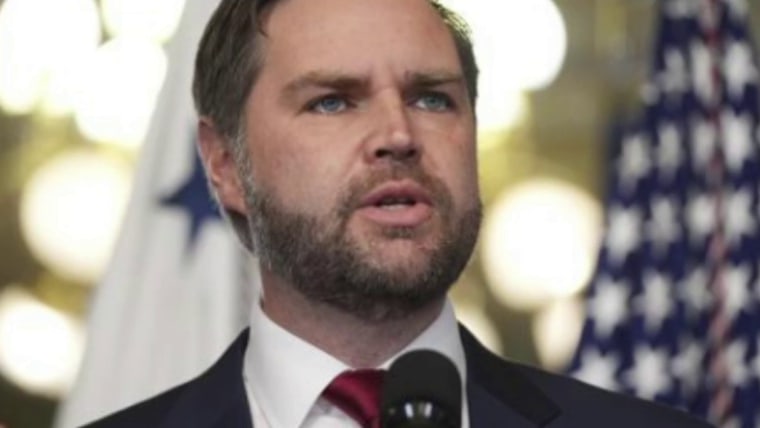
Officials in the state of Washington have agreed to water down a child abuse law after pressure from the Trump administration and local Catholic leaders.
Catholic bishops and the Trump administration had filed lawsuits seeking to overturn a bill signed by Washington Gov. Bob Ferguson, a Democrat and a Catholic, that required faith leaders of all denominations to report allegations of abuse they received in private religious settings — including confession. Though the Catholic Church has a documented history of enabling child sexual abuse, the sponsor of Washington’s bill said the legislation was inspired by reports of abuse within Jehovah’s Witness churches.
Catholic leaders have argued that being forced to report admissions made during a confession amounts to religious discrimination. And after a federal court temporarily blocked the law in July, Washington’s attorney general said late last week that the law will be pared back:
Clergy in Washington will remain mandatory reporters under stipulations filed today by the state Attorney General’s Office and the plaintiffs in lawsuits against the state over Senate Bill 5375. Under the stipulations, however, the state and county prosecutors have agreed — as the court ordered — not to enforce reporting requirements for information clergy learn solely through confession or its equivalent in other faiths. The stipulation now awaits approval by the court.
Most states have so-called clergy-penitent privilege laws that effectively shield religious leaders from having to report child abuse claims they hear in confessional settings. A 2022 report by Boston’s NPR station, WBUR, detailed how this loophole has protected churches from prosecutions and civil lawsuits from victims seeking accountability. Washington had sought to join the few other states without such protections.
In Washington, the governor had denounced the lawsuit filed by Catholic bishops in his state, with Ferguson saying that he was “disappointed my Church is filing a federal lawsuit to protect individuals who abuse kids.”
Jean Hill, executive director of the Washington State Catholic Conference, said in a statement last week that “preventing abuse and upholding the sacred seal of confession are not mutually exclusive — we can and must do both.”
The Dictatorship
Trump administration eyes higher food prices as a result of the immigration crackdown
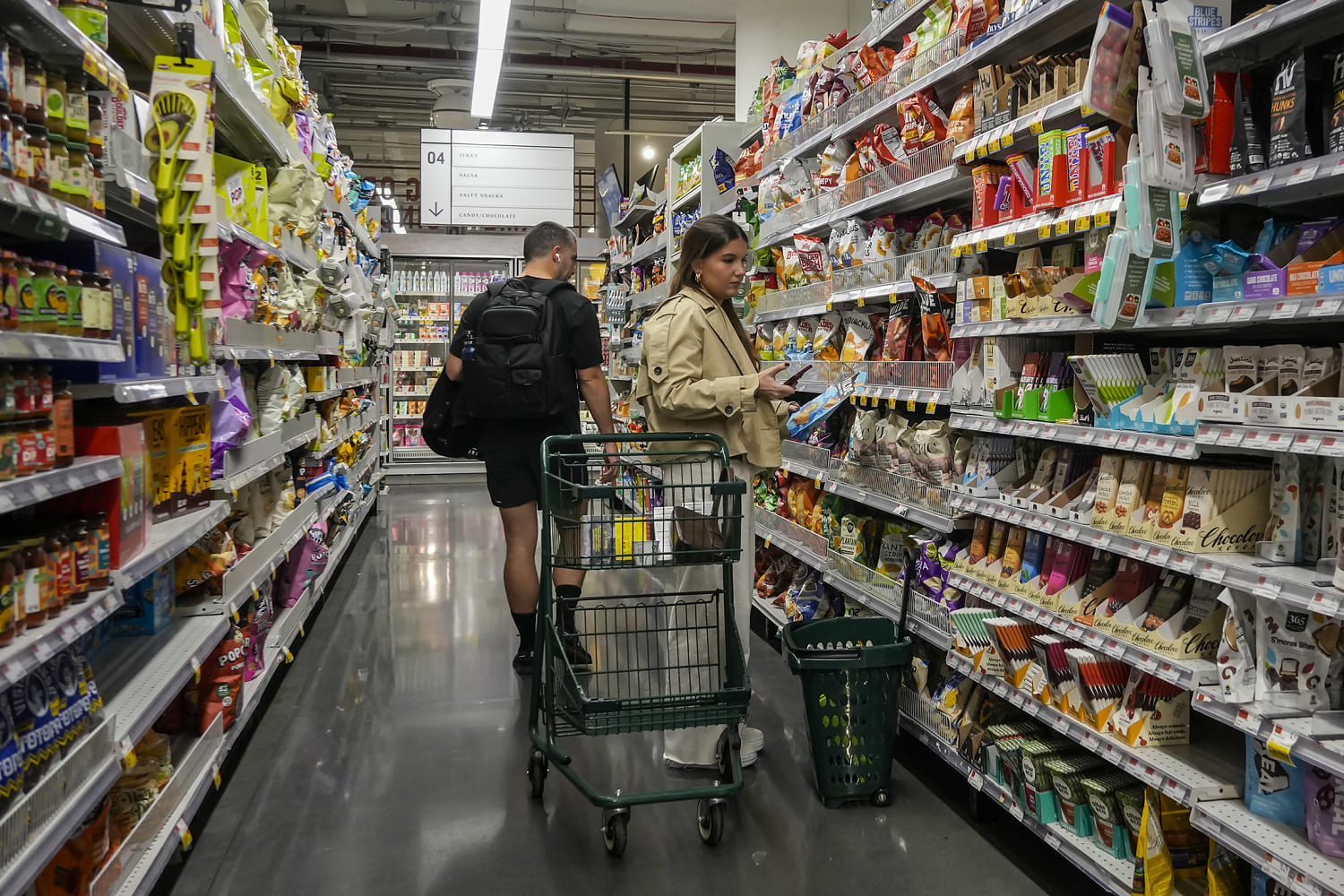
About a month after Election Day 2024, as Donald Trump prepared to return to the White House, the Republican appeared on “Meet the Press” and explained his victory to NBC News’ Kristen Welker.
“I won on groceries,” he saidadding: “I won an election based on that.” Looking ahead, Trump concludedin reference to food prices for consumers: “We’re going to bring those prices way down.”
After returning to power, the president began boasting about his successes on the issue, assuring Americans that he had lowered the cost of groceries — despite the administration’s own data, which shows grocery costs have gone up this year, not down.
Complicating matters, the president’s own team fears that the problem will soon get worse, as a direct result of the Republican White House’s own agenda. The Washington Post reported:
The Trump administration said that its immigration crackdown is hurting farmers and risking higher food prices for Americans by cutting off agriculture’s labor supply. The Labor Department warned in an obscure document filed with the Federal Register last week that ‘the near total cessation of the inflow of illegal aliens’ is threatening ‘the stability of domestic food production and prices for U.S. consumers.’
According to the Labor Department’s assessment, which was first reported by The American Prospectthe administration needs to act “immediately” to prevent the problem from getting worse.
The Post’s report noted that Agriculture Secretary Brooke Rollins has predicted that, in the aftermath of Trump’s mass deportation agenda, the U.S. farm workforce will become “100% American.” Trump’s Labor Department doesn’t see that as realistic, since Americans lack the will and skills to replace migrant farmworkers.
“The Department concludes that qualified and eligible U.S. workers will not make themselves available in sufficient numbers,” the agency said.
In other words, the president who claimed that he won a second term based on food prices, and who vowed to bring consumer costs at grocery stores “way down,” is already lying about his recent record. But making matters even worse is the fact that his own administration expects the problem to get worse, as food production slows as a result of the White House’s campaign against immigrants, which is likely to reduce supply, pushing prices up.
At that point, Trump will have to choose between competing campaign promises: Will he let immigrants stay and help stabilize food costs, or will he deport these workers and risk the fury of consumers who’ll see prices at their local grocery store climb?
Steve Benen is a producer for “The Rachel Maddow Show,” the editor of MaddowBlog and an BLN political contributor. He’s also the bestselling author of “Ministry of Truth: Democracy, Reality, and the Republicans’ War on the Recent Past.”
-
Uncategorized11 months ago
Bob Good to step down as Freedom Caucus chair this week
-

 Politics8 months ago
Politics8 months agoFormer ‘Squad’ members launching ‘Bowman and Bush’ YouTube show
-

 The Josh Fourrier Show11 months ago
The Josh Fourrier Show11 months agoDOOMSDAY: Trump won, now what?
-

 The Dictatorship8 months ago
The Dictatorship8 months agoPete Hegseth’s tenure at the Pentagon goes from bad to worse
-

 The Dictatorship8 months ago
The Dictatorship8 months agoLuigi Mangione acknowledges public support in first official statement since arrest
-

 Politics8 months ago
Politics8 months agoBlue Light News’s Editorial Director Ryan Hutchins speaks at Blue Light News’s 2025 Governors Summit
-

 Politics11 months ago
Politics11 months agoWhat 7 political experts will be watching at Tuesday’s debate
-

 Politics8 months ago
Politics8 months agoFormer Kentucky AG Daniel Cameron launches Senate bid




